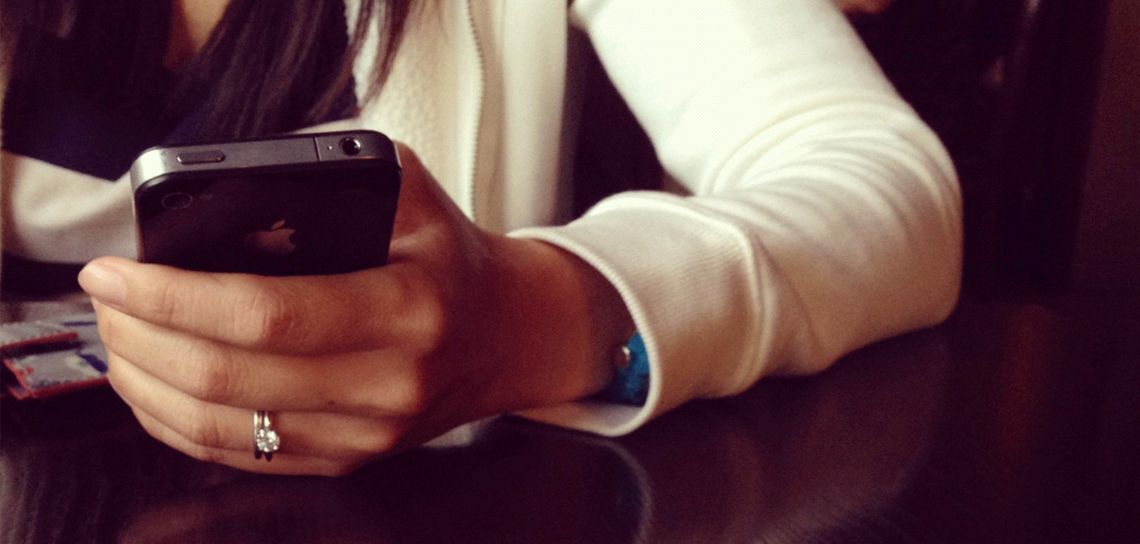Publisher’s View: Total recall
“Wait just a second. I’ll look it up on my phone,” said my oldest son, when his younger brother couldn’t remember the capital of Delaware. He whipped out his phone and started typing, while the younger continued dutifully to rattle off the other New England states and capitals. We were quizzing the poor lad while eating at a restaurant.
“But you memorized the capitals only three years ago,” I said now to the top of my eldest’s head, fixed on the tiny Google screen. “You don’t remember?”
“No clue.”
“And what about you?” I turned to my oldest daughter. “You took this test last year. Do you recall?”
“I got nothin’,” she mumbled between bites of pizza.
“So basically you are memorizing for the test and retaining nothing for the long haul?” I said to my four children.
“I can always look it up,” said the one waving the phone with a smile.
Look it up.
Not to sound like I was born before running water, but I can remember when looking something up included going back to the textbook. Looking up the spelling involved thumbing relentlessly through the well-worn dictionary. Looking up a past event involved microfiche. Microfiche! And to find a book in the library took a working knowledge of the Dewey Decimal System.
We had to work hard to find the answer we were seeking, and then we did something miraculous: We wrote it down. Transferring information from a book to a piece of paper helps seal it in your mind, I am convinced. Much more than just reading it on a screen.
“I actually think something is being lost,” said a father to me as we watched our kids compete on a swim team last summer. “There was a time when you might be out on a date and the two of you racked your brains to remember the words of a song or the name of a person that you saw over in the corner that you both casually knew. There is a process in trying to remember something, in searching your brain for the answer. Today’s kids don’t get that.”
And it’s easy to see why.
Now, when I need to recall someone’s name or their spouse’s name or the spelling of a name, I quickly turn to Facebook or any other social media device that will work. I can easily track down where most people live on Whitepages, and Google Maps tells me how long it should take me to drive there. If I was a stalker—which I’m not—I might even take a gander at the front of their house via Google Earth.
I’ll look it up.
When I was in college in Alabama, I carried maps of three or four states in my car. I loved maps. This is a good thing because GPS was a luxury of the future and the only phone in my car was a bag phone that would have cost about $45 a minute to use. “For emergencies only” did not include “I’m at a fork in the road, Dad. Which way?”
I love modern technology, don’t get me wrong. And I was pleased as punch to have a mapping system when I was driving to a funeral in Walker recently. You are almost there, the blue line with the moving dot encouraged me. Had I only had a handheld map, I would have pulled over long before on that windy road to ask the whereabouts of the Friendship Campus of the Faith Crossing Methodist Church. I’m sure that a local service station attendee would have been happy to help.
But I didn’t have to ask for help. I had my phone.
So will all this technology hurt us later?
Will we be able to recall, in such detail, the moments that we want never to forget? If our brain is being programmed for quick consumption of facts to be rapidly forgotten, will we remember what matters—a child’s first cry, a tender touch, the moment a life leaves the Earth?
You know, those moments when you didn’t take a picture with your phone?
Hopefully, the answer is yes. Because this kind of recall is what truly makes a life. Hopefully easy access to all information won’t rob us of the ability to have a robust memory, one filled with the joys and the pains that enrich our soul.
Oh, and the capital of Delaware is Dover.
I had to look it up.













